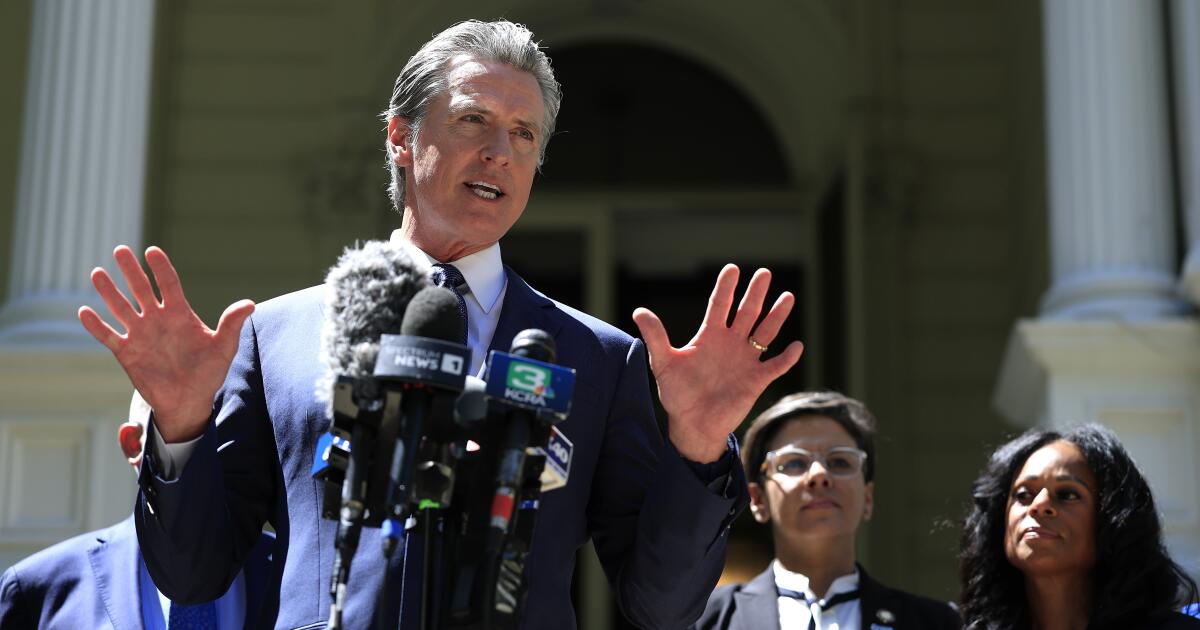The US Supreme Court docket on Friday upheld a Texas regulation that mandates that grownup customers of pornographic materials confirm their ages earlier than accessing the fabric. Making use of intermediate scrutiny, the courtroom held that the regulation is probably going constitutional underneath the First Modification.
The regulation, HB 1181, solely applies to “business” entities, together with “company[s], restricted legal responsibility compan[ies], partnership[s], restricted partnership[s], sole proprietorship[s], or different legally acknowledged enterprise entit[ies],” that distribute “sexual materials dangerous to minors.” To distribute these sexually express supplies, such business entities should make the most of a “affordable age verification methodology” to make sure that the possible consumer is eighteen years of age or older. This consists of both (1) offering digital identification or 2) complying with a “business age verification system” that verifies age utilizing both a government-issued ID or one other “commercially affordable methodology” that depends on transactional information.
The US Court docket of Appeals for the Fifth Circuit upheld the regulation utilizing rational foundation evaluation—the bottom customary of judicial scrutiny. It dominated that “the age-verification requirement is rationally associated to the federal government’s reputable curiosity in stopping minors’ entry to pornography” and that “[t]herefore, the age-verification requirement doesn’t violate the First Modification.” On attraction to the Supreme Court docket, the Free Speech Coalition, counsel for the grownup leisure trade, acknowledged that the regulation “imposes vital burdens on adults’ entry to constitutionally protected expression.”
Writing for almost all in Free Speech Coalition, Inc. v. Paxton, Justice Clarence Thomas emphasised that minors are “extra vulnerable to the dangerous results of sexually express content material, and fewer in a position to admire the position it would play inside a bigger expressive work.” The courtroom held that intermediate scrutiny was the suitable degree of judicial scrutiny on this case as a result of HB 1181 “doesn’t regulate the content material of protected speech” both “on its face” or “in its justification,” which might warrant the appliance of strict scrutiny.
Moreover, the bulk acknowledged that the regulation does “burden” adults’ proper to free speech, so it can not “escape[ ] all First Modification scrutiny”:
We agree that H. B. 1181 targets speech that’s obscene for minors primarily based on its communicative content material. However, the place the speech in query is unprotected, States might impose “restrictions” primarily based on “content material” with out triggering strict scrutiny… As a result of speech that’s obscene to minors is unprotected to the extent that the State imposes solely an age-verification requirement, H. B. 1181’s content-based restriction doesn’t require strict scrutiny. The regulation is content material primarily based in the identical means that prohibitions of “defamation,” “fraud,” and “incitement” are.
Justice Elena Kagan, joined by Justices Sonia Sotomayor and Ketanji Brown Jackson, issued a dissenting opinion, arguing that “[Texas] must be foreclosed from limiting adults’ entry to protected speech if that’s not in truth vital.” Kagan wrote that “this Court docket ought to topic HB 1181 to strict scrutiny. That’s as a result of HB 1181 covers speech constitutionally protected for adults; impedes adults’ potential to view that speech; and imposes that burden primarily based on the speech’s content material. Case closed.”
In accordance with The Age Verification Suppliers Affiliation, at the least 24 states have handed legal guidelines requiring age verification to entry pornographic supplies on-line.





![JOB POST: Patent Searching Professional at Khurana & Khurana [Multiple Location; 3+ years PQE; Patent Searching]: Apply Now!](https://i1.wp.com/cdn.lawctopus.com/wp-content/uploads/2025/07/JOB-POST-Patent-Searching-Professional-at-Khurana-Khurana.jpg?w=350&resize=350,250&ssl=1)















